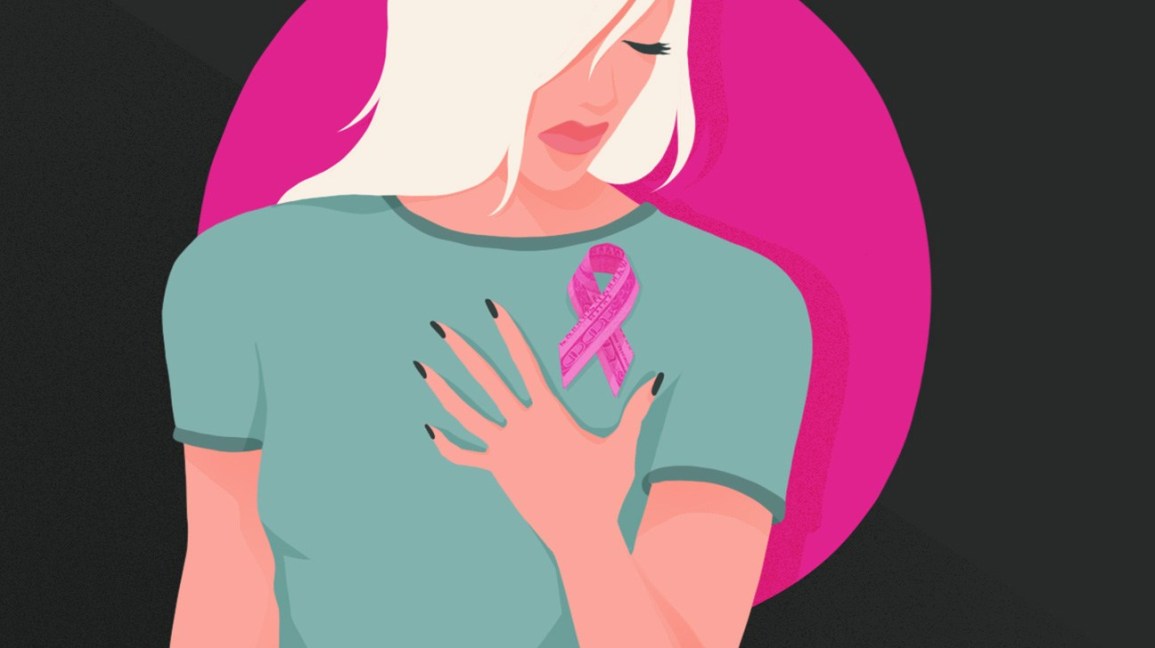
Cancer is a progressive disease that starts from the mutation of a single cell and gives rise to a limitless number of immortal descendant cells. The breast cancer survival rate in India is among the lowest in the world because it is detected late.
Breast cancer has emerged as leading cancer among women. The incidence of breast cancer is on the rise, especially in metropolitan cities.
Breast cancer grows at varying pace and the risk factors for breast cancer include genetics and heredity, use of oral contraception, late menopause intake of alcohol, smoking, etc. have been attributed to an increase in the incidences of breast cancer among young Indian women.
To address the same Dr Sapna Nangia, Senior Consultant, Radiation Oncology, Apollo Proton Cancer Centre, Chennai joined us on a Facebook Live session on ‘Radiotherapy For Breast Cancer: Dispelling Fear.’
Q. What exactly does radiation therapy accomplish in breast cancer?
Breast cancer is a malignant tumour that usually develops as a lump in the breast tissue. It is important that every woman develops a self-examination routine to check her breast area for any lump formation and in case of any irregularity, go in for a clinical examination.
Radiation therapy is used to treat breast cancer at almost every stage. Radiotherapy is using high energy x-rays to destroy the DNA of tumour cells. Now, these high energy x-rays are given in a very controlled manner so that we can focus on the area we want to treat.
Radiation therapy kills cancer cells and is used to provide relief from pain and other symptoms of advanced breast cancer and is actually very easy to tolerate than any other methods. Radiation targets the mutation of cells to reduce the chance of cancer recurrence.
Q. Is there any site-specific side effect of radiation therapy?
There’s a tendency that when we discuss cancer treatment people got so scared about everything revolved around breast cancer or cancer treatment, that sometimes we forget that these treatments have enormous benefits.
There are few temporary side effects from radiation therapy which may include- skin irritation — such as itchiness, redness, peeling or blistering, mild to moderate fatigue.
Some may experience difficulty in swallowing because in some women we need to treat the lymph nodes that lie above the collarbone and those lymph nodes are very close to the food pipe that may create some amount of discomfort.
There are very few long-term side effects of radiotherapy. But the ones that we are really concerned about is the impact on the heart that is more in people who have had previous heart disease.
The risk factors for breast cancer include excessive intake of alcohol, smoking, those who have a family history of heart diseases. Diabetes, obesity, COPD also put breast cancer patients at a higher risk of complications.
For example, when we are treating the lymph nodes that lie under the breast bone then there is a problem that the heart also receives a certain dose that problem is more manifest in people obviously because inherited breast cancer patients and lesson right-sided breast cancer.
We are also concerned about patients developing hypothyroidism because their thyroid levels may go down because of thyroid lies adjacent to the area that we are treating. To keep track of the thyroid function of developing second cancers because of radiation we try to reduce the dose to the normal.
Q. What is Proton Therapy?
At the Apollo Proton Cancer Centre, we have implemented the proton therapy for breast cancer program. Proton therapy offers more precise radiation dose delivery to the treatment target and protection of nearby healthy tissue.
Proton therapy is a type of radiation therapy that uses protons rather than x-rays to treat cancer. At high energy, protons can destroy cancer cells. Proton therapy beneficial for breast cancer patients by minimizing damage to nearby tissue and critical organs such as the heart and lungs.
Diet Recommendations
Estrogen is responsible for the formation of breasts and even breast cancer and hence people with obesity have higher chances of them developing breast cancer, especially after menopause.
During treatment, is very important to have a healthy, balanced diet. Eating right will keep you at a healthy weight and reduce the chances of breast cancer.
Diet should contain a balance of nutrients, protein, calories, and fat. I usually don’t advise antioxidants to my patients. There are some reports that suggest that people who have antioxidants medicines can actually interfere with the success of treatment.
Eating a balanced diet consisting of fruits and vegetables when you have breast cancer keep you at a healthy weight and help preserve your muscle strength.











